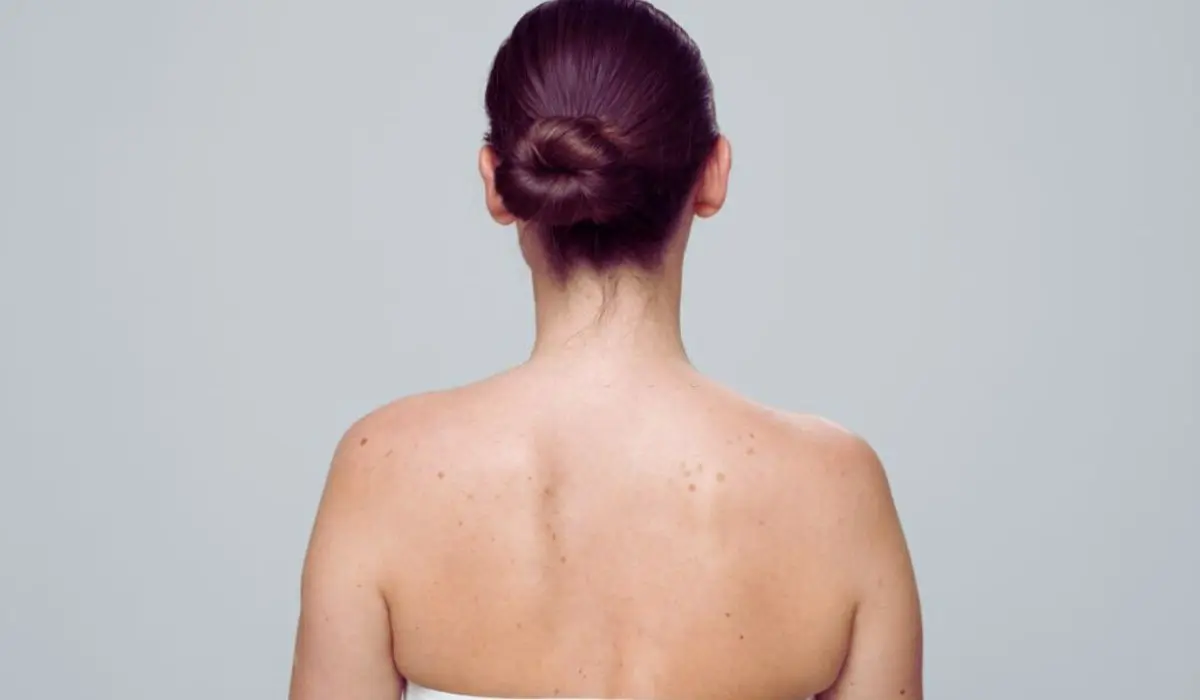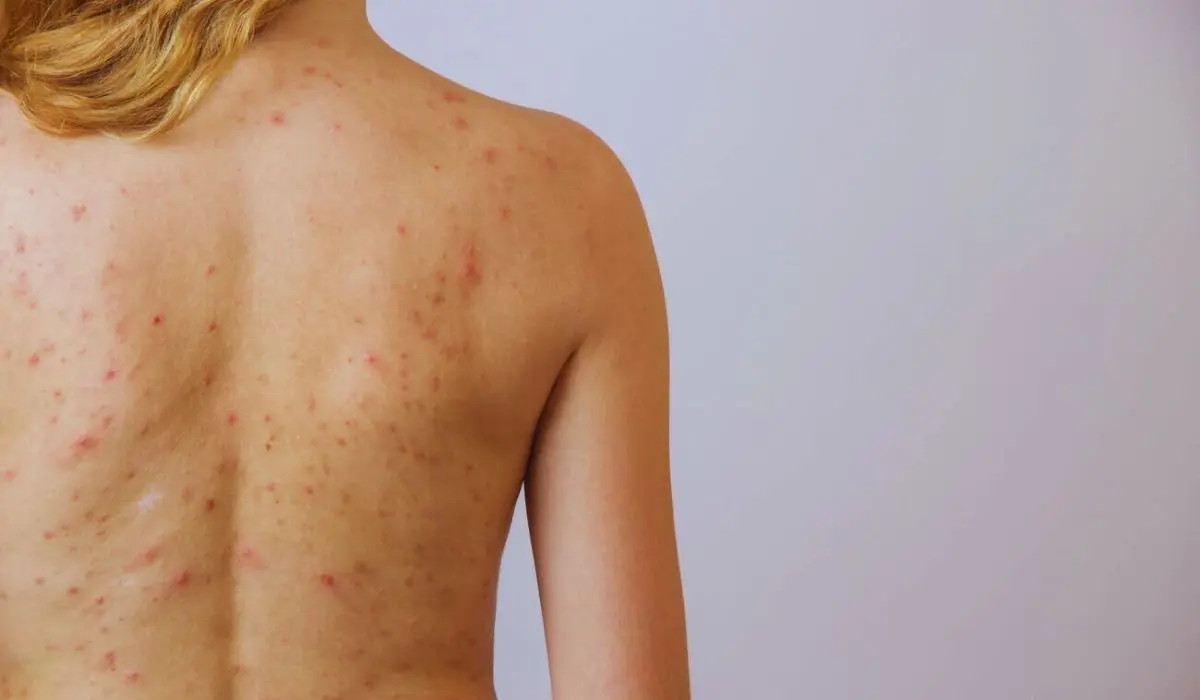Back acne, also known as bacne, is a common skin condition that causes pimples to develop on the back. While anyone can get bacne, it predominately affects females due to hormonal fluctuations and other factors.
Understanding what causes back acne in females is key to reducing and clearing up breakouts.
What Is Back Acne?
Back acne describes a form of body acne where clogged hair follicles and oil glands lead to pimples forming on the back.

Lesions can include noninflammatory whiteheads and blackheads, inflammatory papules and pustules, cysts, nodules, and swollen reddish pimples.
Back Acne most often appears across the upper back, bra line, and along the spine, typically in sporadic breakouts but sometimes in severe, widespread eruptions.
What Causes Back Acne In Females?
▪️ Hormonal Imbalances
Androgen hormones trigger excess oil production and clogged pores. Fluctuations around menstrual cycles and puberty exacerbate acne.
▪️ Tight Clothing and Fabrics
Tight tops, bras, and snug waistbands create friction, sweat, and irritation leading to clogged pores and infection. Synthetic fabrics that don’t breathe well aggravate this.
▪️ Hair Products
Shampoos, conditioners, and oils that run down the neck and back can clog pores. Pomades and hair gels transferring to the skin also cause problems.
▪️ Stress
Stress increases inflammation and oil production which worsens acne. Bacne related to stress often appears before periods.
▪️ Medications
Certain medications like lithium, corticosteroids, testosterone, and anticonvulsants are linked to bacne as side effects.
▪️ Excess Sweating
Sweat traps dirt and oils in pores resulting in clogged follicles and bacne lesions. Exercising without showering afterward contributes.
▪️ Genetics
Familial tendencies to produce too much oil or undergo hormonal shifts provoke breakouts.
How Can Back Acne Be Treated?
Mild cases may be managed at home with over-the-counter benzoyl peroxide acne creams or gels. Severe, persistent bacne often requires prescription medications from a dermatologist like:
Avoid picking and scraping at bacne lesions which can worsen scarring. See a dermatologist promptly if over-the-counter products fail to improve breakouts.
How Can Back Acne Be Prevented?
Are There Any Natural Remedies for Back Acne?
Some potential natural adjuncts to medical treatment:
Conclusion
Hormonal factors, friction, sweat, hair products, and stress contribute to back acne in females. While prevention helps, medical treatment is often needed to clear bacne.
Natural remedies can provide additional antimicrobial and anti-inflammatory support when used safely. Managing bacne requires diligence but smooth skin can be restored with proper dermatological care.
FAQs
Chest acne is mainly hormonal, while back acne has several causes including clothes friction and hair products. Both can benefit from acne treatments.
Certain dairy products and high glycemic foods may exacerbate acne. But diet modification has a minor role compared to other bacne causes.
No, squeezing and picking back acne can lead to infections and scarring. Allow bacne lesions to heal on their own or seek medical treatment.

